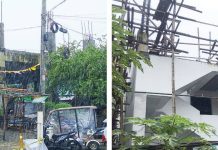REPORTS about schoolchildren having difficulty reading – in Iloilo, the Bicol region and who knows where else – bolster the calls for an urgent and thorough review of the K to 12 curriculum.
Also, Department of Education (DepEd) officials must listen to teachers, education support personnel, unions, students, and parents to know from the grassroots the realities and effects of under-funding, low salaries, and the shortages brought about by the implementation of the Enhanced Basic Education program.
The Enhanced Basic Education Act has brought with it countless issues including persisting lack of adequate instructional materials and textbooks, shortages in schools and classrooms, other learning facilities including computer and science laboratories and libraries. These continuing problems result to huge class sizes, and students not having sufficient materials to help them in the most basic skills like reading. Teachers can only do so much with the materials they are provided and the time they have left to make sure that no child is left behind.
We caution the DepEd against putting blame on the teachers on this worrisome reading comprehension problem. It is the responsibility of the education agency to make sure that their policies could cater to the needs of the teachers and students to ensure the quality of education the youth receive.
DepEd has been imposing policies that do not help teachers, in fact the education agency has been imposing policies that further burden teachers and hinders them from providing the best quality of education. Teachers continue to be overworked and underpaid with the numerous non-teaching tasks and paperwork they have to fulfill. Large class sizes and shortages in classrooms still persist with 50 to 60 students sharing half a classroom.
It’s appalling that the budget for the enhanced basic education program has been increasing every year without addressing the perennial problems of shortages in classrooms, learning materials, teachers, education support personnel, among others. With the lack of institutional support from the government to be able to provide genuine quality education, having non-readers is not surprising and should be immediately addressed by the education agency.
How else can we expect our youth to perform in assessment tests or even learn the most basic skills of reading comprehension, writing and mathematics if the government continues to turn a blind eye and deaf ears on the perennial problems of shortages and policies in the basic education system?





